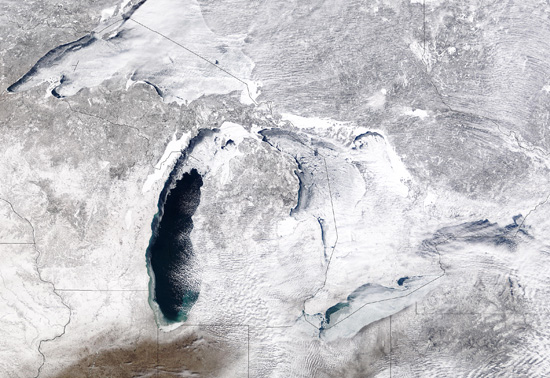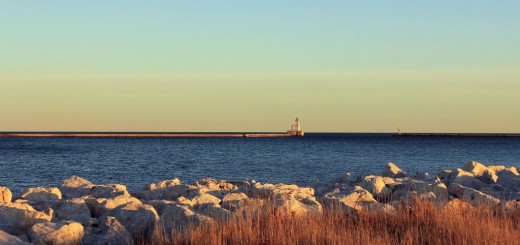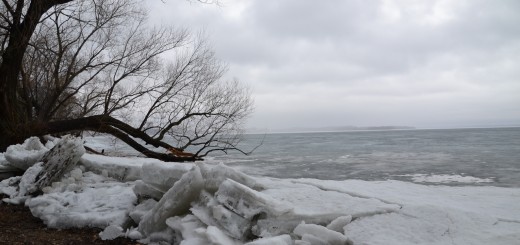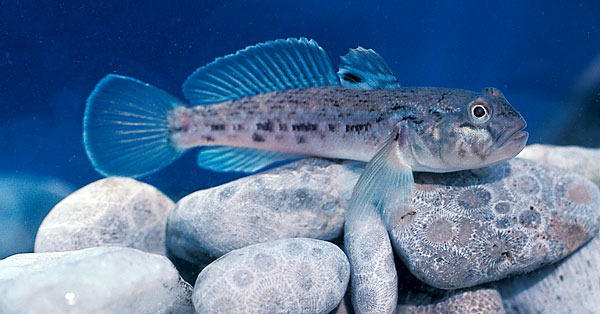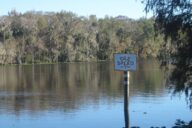Lake News Roundup: Asian Carp, Extreme Snow, Ice Cover
0Army Corps May Have Overestimated Cost to Protect Lake Michigan from Asian Carp

Lake Michigan in winter. (Credit: Marco Bonavoglia via Wikimedia Commons)
An investigation by the Milwaukee Journal Sentinel looking at the Army Corps’ proposed separation of Lake Michigan and the Mississippi River finds that “controversial interpretations of federal and state water laws” may be impacting the project’s cost and timeline.
Most of the Army Corps’ estimate to restore the separation between the lake and the Mississippi River is inflated by projects that have little to do with stopping the invasive asian carp. These include billions for new reservoirs, sewer tunnels and water treatment plants.
The newspaper asks the Army Corps for a better explanation of the estimate in an editorial.
35 Inches of Snow at Bear Lake

Bear Lake, May 2009. (Credit: Flickr User LWY via Creative Commons)
Officials at Rocky Mountain National Park say that Bear Lake has gotten 35 inches of snowfall since February 7, according to the Boulder County News.
Total ground levels of snow near the lake are now 75 inches. The recent extreme snowfall has prompted an avalanche warning for the area.
EPA Sets Hearing on Lake Champlain

Lake Champlain marsh, August 2007. (Credit: Benjamin Scott Florin via Creative Commons)
The U.S. EPA will brief a House of Representatives Committee on the agency’s response to a proposed plan to clean up pollution and waste in Lake Champlain, according to The Barre Montpelier Times Argus. The meeting will focus on total daily maximum loads of pollutants going into the water body.
New Lake George Boating Regulations May Affect Nearby Schroon Lake

Schroon Lake, September 2009. (Credit: Doug Kerr via Creative Commons)
Officials at the Schroon Lake Association worry that rules requiring boats to be inspected and washed (to clean off invasive species) before entering Lake George may bring more dirty boats to Schroon Lake’s waters, according to Denton Publications.
Lake Superior May Reach Record Ice Levels

Icy Lake Superior, February 2007. (Credit: Sharon Mollerus via Wikimedia Commons)
Experts say Lake Superior is only a few cold, windy nights away from record ice cover, according to WDIO. On February 10, the lake’s ice cover was just above 88 percent, down from 93 percent the Friday before. The Lake hasn’t frozen over since 1996.
As a whole, the Great Lakes are more than 78 percent covered in ice. When there is this much ice, meteorologists say the summers that follow are normally cooler.




